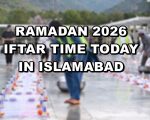HKSAR – The authorities in Hong Kong have implemented a national security risk assessment for all visa applicants.
The country’s Immigration Department has implemented the measure designed to screen out potential threats while upholding international standards of openness and accessibility.
Director of Immigration Benson Kwok commented on the development that the move will adhere to existing laws and immigration policies, ensuring fairness and impartiality across all applications, including those from foreign journalists and academics.
According to the details, under the new assessment, visa applicants will undergo thorough evaluations of their background and past statements to determine any potential risk to national security. This development comes as Hong Kong strives to balance its role as a global hub with the imperative to safeguard its sovereignty.
The introduction of this assessment marks a new era of scrutiny for Hong Kong’s immigration process, responding to recent incidents involving denied visas and entry refusals.
The decision comes weeks after high-profile cases like that of academic Rowena He Xiaoqing and Japanese journalist Yoshiaki Ogawa emerged which underscored the need for enhanced security measures. Despite these changes, the proportion of visitors denied entry remains lower than pre-pandemic levels in 2019.
The measures come amid pleasant signs for the country which has shown 70 percent recovery of tourism as compared to pre-pandemic levels, notably driven by visitors from mainland China and overseas.
Meanwhile, to attract top talent, the Immigration Department has introduced the Top Talent Pass Scheme, targeting high-income earners and graduates from prestigious universities but the results of the new risk assessment would imply whether the tourists are deterred by the move or not.














